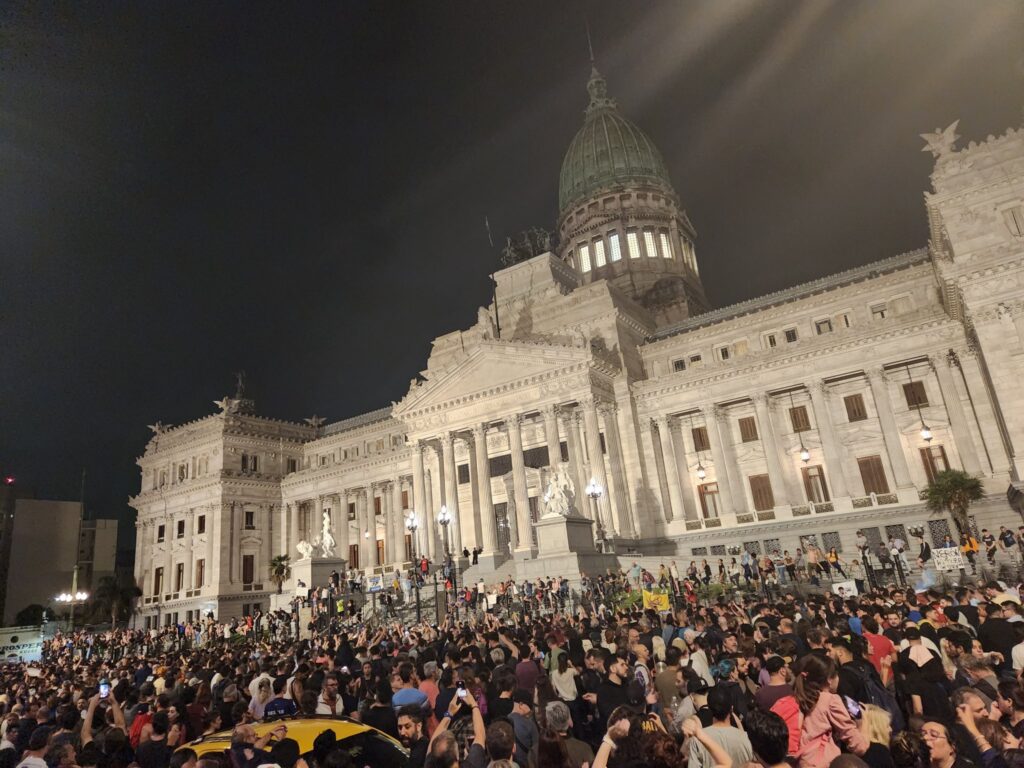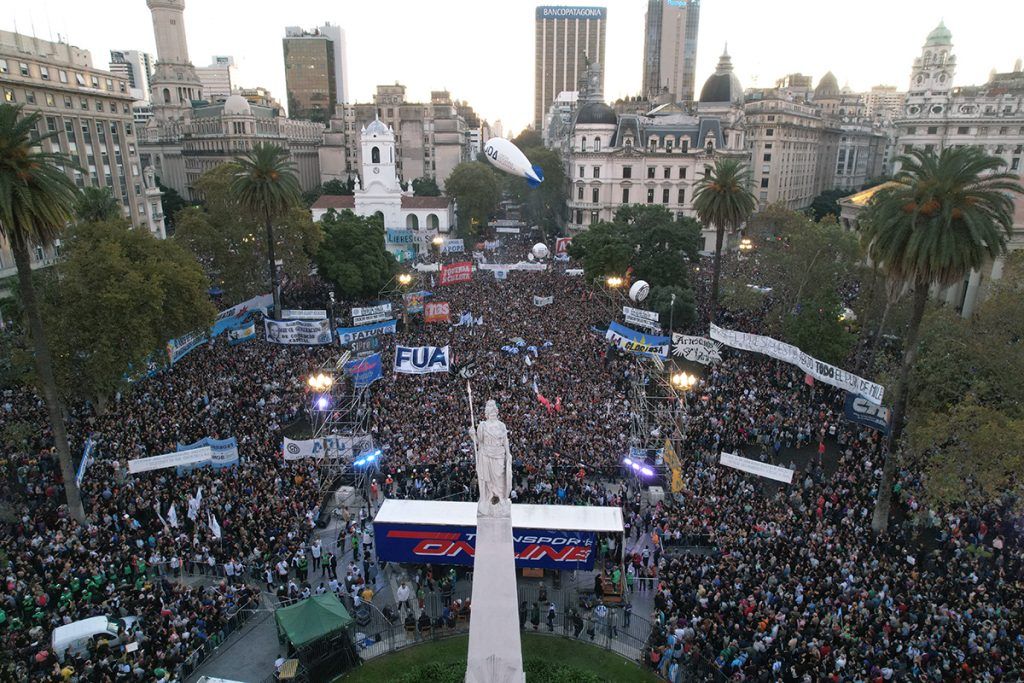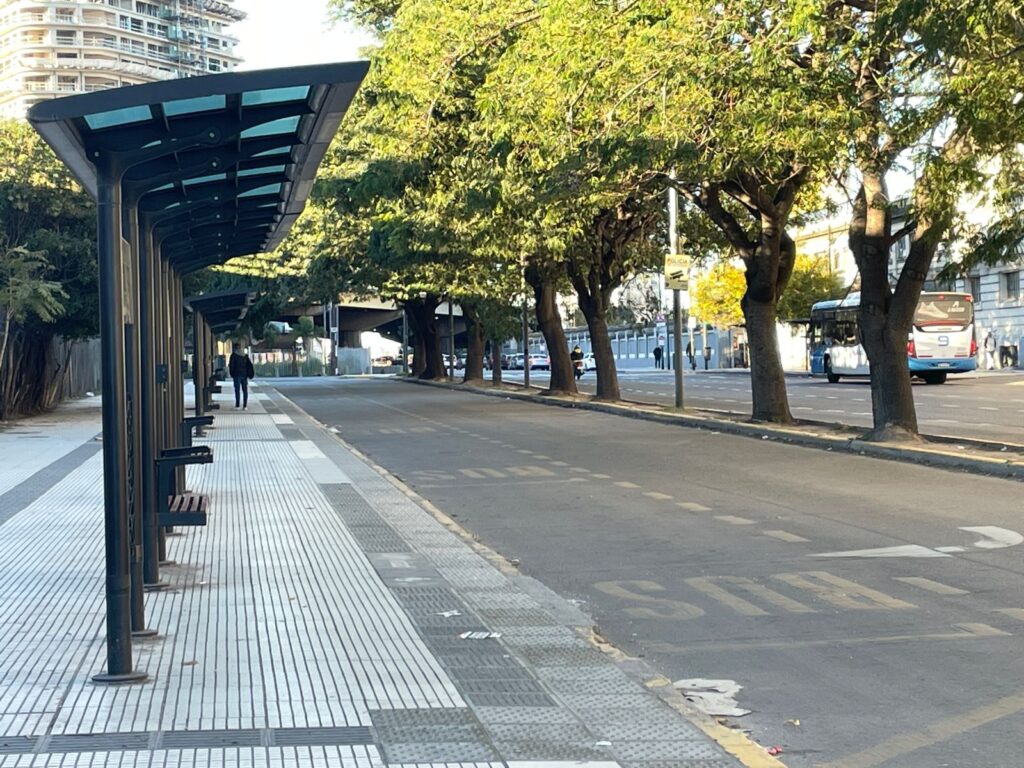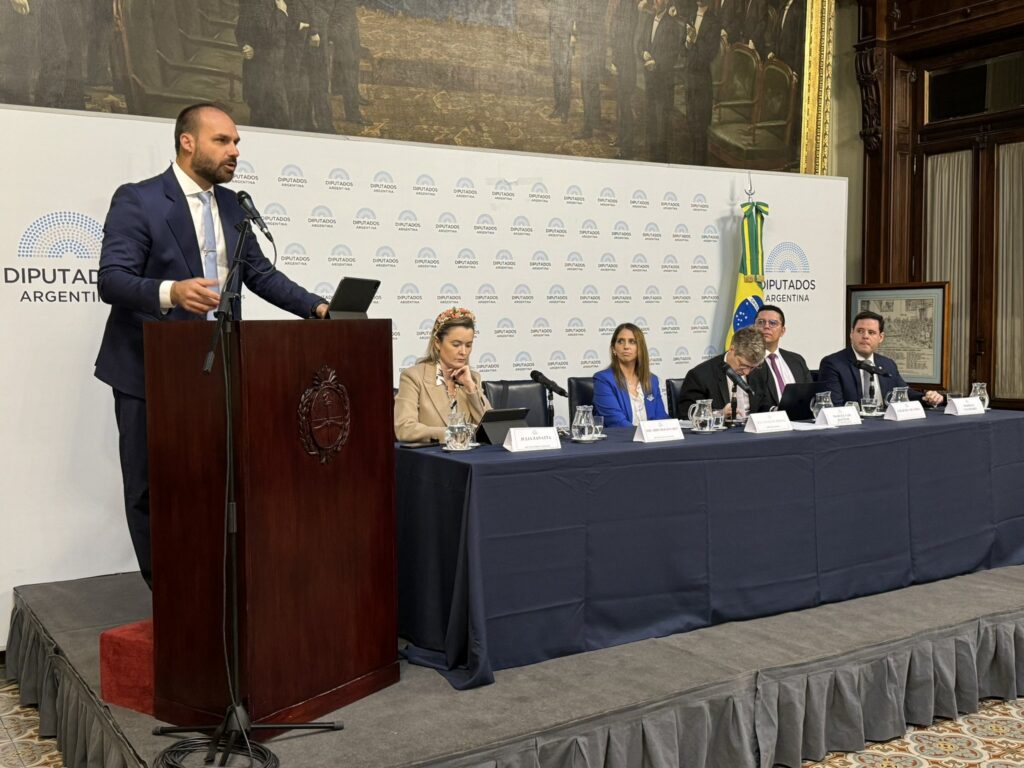Argentina’s economy looks set to face further challenges as it was announced that President Javier Milei’s reform bill has been rejected by the country’s lawmakers.
While the package has now been withdrawn by the ruling party, the government is now considering breaking the reforms into separate bills so that major structural reforms like privatizing state entities can be considered on an article-by-article basis.
Either way, this is likely to be seen as a major setback for the country’s newest President, who came into power after a runoff vote at the end of last year.
His campaign was based on promises to implement ‘shock therapy’ in an attempt to battle inflation and rising poverty rates after decades of financial mismanagement. This included ideas like shutting the central bank, ditching the peso, and slashing spending.
“Turning their backs”
In an official statement, the country’s presidential office said governors “decided to turn their backs on the Argentines to protect their interests and prevent the national government from having the tools to solve Argentina’s structural problems”.
The so-called omnibus bill was Milei’s first attempt to enact these campaign ideas and enshrine them in the constitution. Yet his government office has come under fire for trying to push a huge number of reforms through in just one bill.
“The defeat of Milei’s omnibus bill in the lower house’s plenary debate speaks volumes about the government’s political ‘inexperience’ and is the consequence of trying to push through all reforms in a single mega bill,” said Jimena Blanco of Verisk Maplecroft in an interview with CNBC.
“The reform bill has now returned to square one, but with the aggravating factor that the initial willingness of certain opposition blocs to negotiate and collaborate with the executive has been eroded, and some are outright annoyed by what they consider as legislative amateurism,” she added.
If anything is clear, political clashes between the government and lawmakers risk creating even more volatility and uncertainty for an economy that’s already pushed to its limits.

Alternatives for Argentina
Now that the bill has been rejected, Milei’s office will be busy reworking the proposed reforms. But in the meantime, every day Argentinians’ are dealing with the impact of the situation.
For some, seeking alternative ways to secure an income is non-negotiable, and NFT’s could provide one solution.
According to Stuart Meczes of Contnt, “NFT’s provide immutable evidence that an individual has indeed created a certain piece of content. Creators and knowledge workers in Argentina can look to protect their work with NFTs to prove ownership and unlock income from royalties to stabilize content creation during this turbulent time.”
The situation unfolding in Argentina is a prime example of how digital assets and solutions can help everyday individuals improve their economic situation, and receive contributions for their work and protect personal ownership. Added Edward Cullen of Crescite, “the next generation of the internet, Web3, looks to create a secure, decentralized system that allows users and organizations to regain control of individual privacy and network systems. While these technologies are mocst often associated with cryptocurrencies, they have the potential to deliver even more”.
Entrepreneurs in the country are also likely to be under pressure due to the economic challenges. Online platforms are helping to democratize access to funding and make it possible to build remote first teams.
“Investors in 2024 are increasingly open to funding startups from a variety of locations, in contrast to the days when you had to go and shake hands in person”, said Kevin Siskar, CEO of Finta. “It’s also entirely possible to build a remote first SaaS solution that targets an international market, meaning founders can continue to grow digital businesses and unlock funding.”
Argentinians has been ravaged by an annual inflation rate of more than 211%, its highest level in 32 years. Today 2 in 5 citizens in the country live in poverty.
President Milei is currently meeting with Pope Francis on his first bilateral trip abroad.











